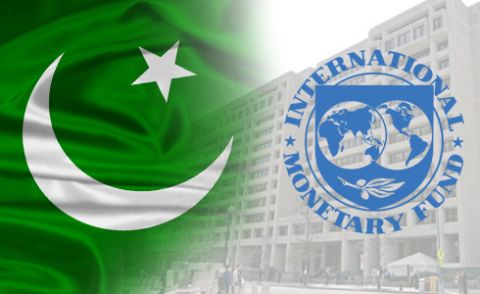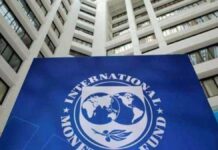
- ‘Keeping all the shortcomings in view, IMF may agree for less than $6bn package’
ISLAMABAD: Unlike the government’s previous stance of seeking a bailout package worth $12 billion, Pakistan is likely to request International Monetary Fund (IMF) for a programme of around $7 billion after financial help from Saudi Arabia.
Pakistan is set to begin nearly two weeks of talks with the IMF tomorrow (Wednesday) over what would be the country’s 13th IMF bailout since the 1980s to help it end a spiralling current account crisis.
Finance Minister Asad Umar said $12 billion is required immediately, a large chunk of which is expected to be drawn from the IMF.
“The initial three to four days (of the talks) are for technical discussions,” said finance ministry spokesman Noor Ahmed. “Thereafter, there will be policy dialogue on the specific contents of the programme.”
According to sources, IMF has sought details about public sector enterprises, energy projects, debt sustainability assessments etc. from the ministry to analyze the repayment capacity of Pakistan.
Apart from the required data, sources claim, the government has made up its mind that it would share with IMF the inflows and outflows and other data about CPEC projects but not the framework agreement signed for the multibillion-dollar programme.
It was noted that Asad Umar had earlier made it clear that his government would share details about CPEC as there was nothing to hide. However, the government was now of the view that there would be no need to share the framework agreement signed with China.
According to insiders, unlike the expectations, IMF, keeping all the shortcomings in view, may agree for less than $6 billion programme.
“The finance ministry is also not expecting more than the said amount, as it has been wary of the IMF imposing harsh conditions compared to the last bailout in 2013 when Islamabad was given repeated waivers after receiving $6.7 billion,” they said. “The meetings of US Principal Deputy Assistant Secretary of State for South and Central Asia Alice G Wells with officials here may also play role in the next IMF programme,” said the insiders.
Since no significant outcome of the Prime Minister Imran Khan’s visit to China has been witnessed, Pakistan is not in good position to bargain for better programme, sources said, adding that Pakistan needed a comparatively bigger package this time keeping in view the huge current account deficit.
It is pertinent to mention that Pakistan announced last month a $6 billion assistance package from Saudi Arabia, split into $3 billion in foreign currency support and a further loan worth $3 billion in deferred payments for oil.
The announcement followed Prime Minister Imran Khan’s visit to Riyadh last month for an investment conference that was boycotted by several other leaders following the killing of a Saudi journalist at the country’s consulate in Istanbul.
Khan had said before the visit that his country was “desperate” to shore up its foreign currency reserves, which are at a four-year low, equivalent to less than two months of imports and barely enough to make its debt repayments through the rest of the year.
“The support we received left and right will have an overall impact on our microeconomic numbers,” finance spokesman Noor Ahmad said. “The programme that will be designed (with the IMF) will be stability focused … They will look at the numbers and take their decision.”
Pakistan’s current account deficit widened 43% to $18 billion in the fiscal year that ended in June, while the fiscal deficit has ballooned to 6.6% of gross domestic product.
Khan was in China last week where he held talks on economic help, but Beijing said additional talks were required.






